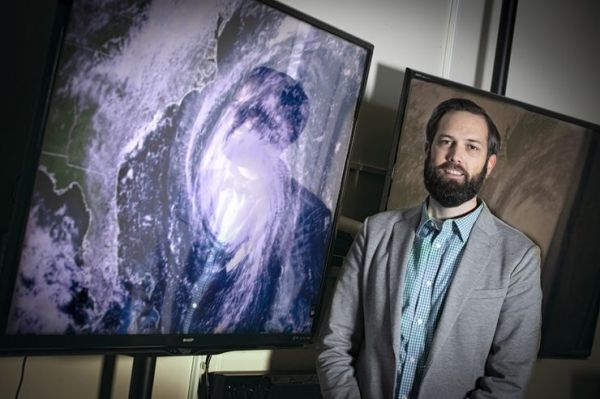A study led by Kevin Reed, PhD, Assistant Professor in the School of Marine and Atmospheric Sciences (SoMAS) at Stony Brook University, and published in Science Advances, found that Hurricane Florence produced more extreme rainfall and was spatially larger due to human-induced climate change.
Previous research has suggested that human influences such as emission of greenhouse gasses that alter climate does affect precipitation in extreme storms. The research in this study, however, is a first to use a “forecast attribution” framework that enables scientists to investigate the effect of climate change on individual storm events days in advance.
Reed explains the future tools of storm modeling including the approach by his team in this brief video.
Changes in extreme weather are one of the most serious ways society experiences the impact of climate change. Severe weather and natural disasters account for much damage and has a major economic impact on countries. Reed and colleagues nationally are investigating ways to better forecast extreme storms in the context of climate change.
In 2018, prior to the landfall of Hurricane Florence, Reed and colleagues made predictions based on simulations of the storm given climate change models. They predicted Hurricane Florence would be slightly more intense for a longer portion of the forecast period, rainfall amounts over the Carolinas would be increased by 50 percent due to climate change and warmer water temperatures, and the hurricane would be approximately 80 kilometers larger due to the effect of climate change on the large-scale environment around the storm.
Read more at Stony Brook University
Image: Kevin Reed. CREDIT: Stony Brook University


